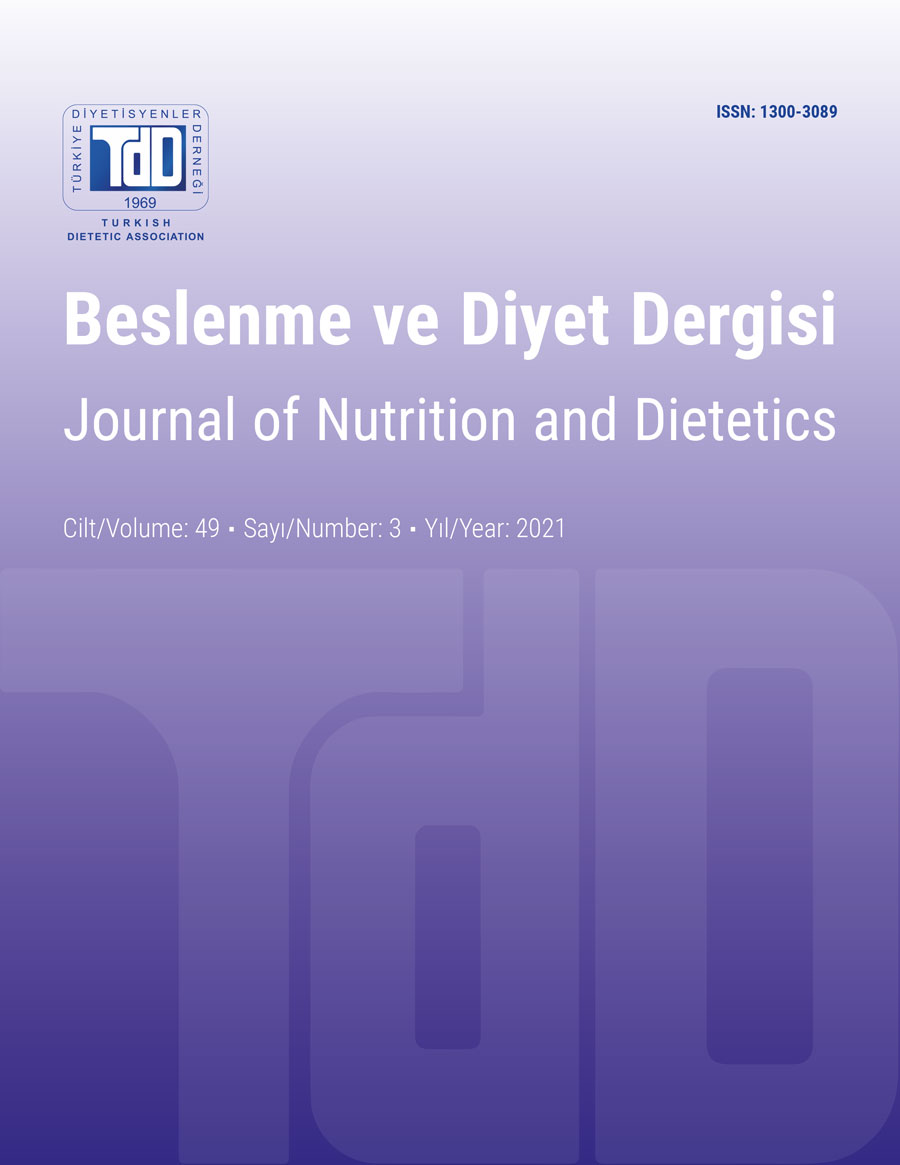Evaluation of Nutritional Behaviors and Orthorexic Tendency of Individuals During the COVID-19 Pandemic Process
DOI:
https://doi.org/10.33076/2021.BDD.1514Keywords:
Orthorexia nervosa, dietary behavior, COVID-19 pandemicAbstract
Aim: This study was carried out to understand the effects of the pandemic process on orthorexia nervosa (ON), to determine the factors associated with individuals with ON tendency, and to evaluate the eating behaviors of these individuals.
Subjects and Method: This cross-sectional study was carried out by using an online questionnaire, with the participation of 699 voluntary adult individuals over the age of 19, without chronic disease and COVID-19 history. In the created questionnaire form, some general information about the individuals, self-reported anthropometric measurements, and information about their eating habits were collected. In addition, the orthorexic tendencies of individuals were determined with the ORTO-15 scale. The research data were evaluated in the SPSS program.
Results: A total of 699 individuals, 21.7% male and 78.3% female, were included in the study. The Orthorexic tendency was detected in 68.2% of the individuals. It was determined that orthorexic tendency was higher in males (75%), employed (76.6%), postgraduate graduates (79.5%), and those with normal body weight (76.1%) (p<0.05). It was found that orthorexic tendency did not affect some nutritional habits such as the amount of food consumed, the frequency of eating at home, the frequency of ordering food, the intakes of vitamins and minerals, the consumption of main and snack meals (p>0.05). According to the results of the regression analysis, it was determined that the changes in the consumption of milk-yogurt, poultry, and sugar increased the orthorexic score of the individuals (p<0.05).
Conclusion: As a result, it has been determined that individuals have a high level of orthorexic tendency during the COVID-19 pandemic process and this tendency is higher in individuals with high education levels and close to ideal body weight. Since eating disorders that develop during periods of high stress such as a pandemic can be long-term, it is important to diagnose these nutritional disorders on time and to give individuals the necessary nutritional therapy in this regard.

